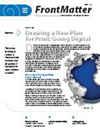协同建模和模拟以减轻不丹东部高海拔牧场退化
IF 1.8
4区 环境科学与生态学
Q4 ENVIRONMENTAL SCIENCES
引用次数: 0
摘要
过度放牧对高海拔牧场退化的影响是喜马拉雅地区的一个问题,它导致了使用者之间的紧张关系。在不丹东部的高山地区,两个定居和半游牧的牧民社区一直在为获得一个大型天然牧场而进行持久的公开冲突。为了重建这些社区之间的沟通渠道,与相关利益相关者一起实施了参与式建模和模拟过程。研究和推广官员参加了关于这种合作方法及其关键工具,特别是计算机辅助角色扮演游戏的培训讲习班,随后立即举行了由每个社区的6名牧民参加的实地讲习班。参与者利用他们的经验知识来提高土地退化问题在拟议游戏板上的空间分布的相关性。他们还在角色扮演游戏的特点和规则与牧场的实际情况之间建立了联系。游戏环节允许参与者在一个没有威胁的环境中分享他们对土地退化过程的各自观点。实地研讨会的评估确定了对问题的认识、参与者的信心、学习和相互信任的多重影响。这一干预措施使社会资本能够在分水岭准备主要面向发展的干预措施之前出现。这项研究证明了使用简单但相关的抽象模型的针对性,与用户共同设计,以缓解冲突各方在使用可再生自然资源方面的紧张关系。本文章由计算机程序翻译,如有差异,请以英文原文为准。
Collaborative Modeling and Simulation to Mitigate High-Elevation Rangeland Degradation in Eastern Bhutan
The contribution of overgrazing to high-elevation rangeland degradation is a problem across the Himalayan region, and it leads to tensions among users. In the alpine areas of eastern Bhutan, 2 communities of settled and seminomadic herders have been engaged in enduring open conflict over access to a large natural pasture. To reestablish a communication channel between these communities, a participatory modeling and simulation process was implemented with the concerned stakeholders. A training workshop on this collaborative approach and its key tools, particularly computer-assisted role-playing games, was attended by research and extension officers and was immediately followed by a field workshop attended by 6 herders from each community. The participants used their empirical knowledge to improve the relevance of the spatial distribution of the land degradation problem on the proposed game board. They also established a link between the features and rules of the role-playing game and the actual circumstances of the rangeland. The gaming sessions allowed the participants to share their respective viewpoints on the land degradation process in a nonthreatening environment. The assessment of the field workshop identified multiple effects regarding awareness of the problem, participants' confidence, colearning, and mutual trust. This intervention enabled the emergence of social capital ahead of the preparation of major development-oriented interventions in the watershed. This study demonstrates the pertinence of using simple but relevant abstract models, codesigned with their users, to mitigate tensions between parties in conflict over the use of renewable natural resources.
求助全文
通过发布文献求助,成功后即可免费获取论文全文。
去求助
来源期刊
CiteScore
3.10
自引率
18.80%
发文量
36
审稿时长
4.5 months
期刊介绍:
MRD features three peer-reviewed sections: MountainDevelopment, which contains “Transformation Knowledge,” MountainResearch, which contains “Systems Knowledge,” and MountainAgenda, which contains “Target Knowledge.” In addition, the MountainPlatform section offers International Mountain Society members an opportunity to convey information about their mountain initiatives and priorities; and the MountainMedia section presents reviews of recent publications on mountains and mountain development.
Key research and development fields:
-Society and culture-
Policy, politics, and institutions-
Economy-
Bio- and geophysical environment-
Ecosystems and cycles-
Environmental risks-
Resource and land use-
Energy, infrastructure, and services-
Methods and theories-
Regions

 求助内容:
求助内容: 应助结果提醒方式:
应助结果提醒方式:


